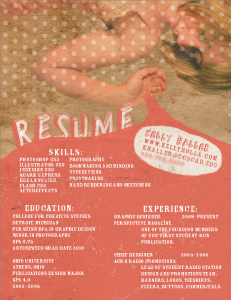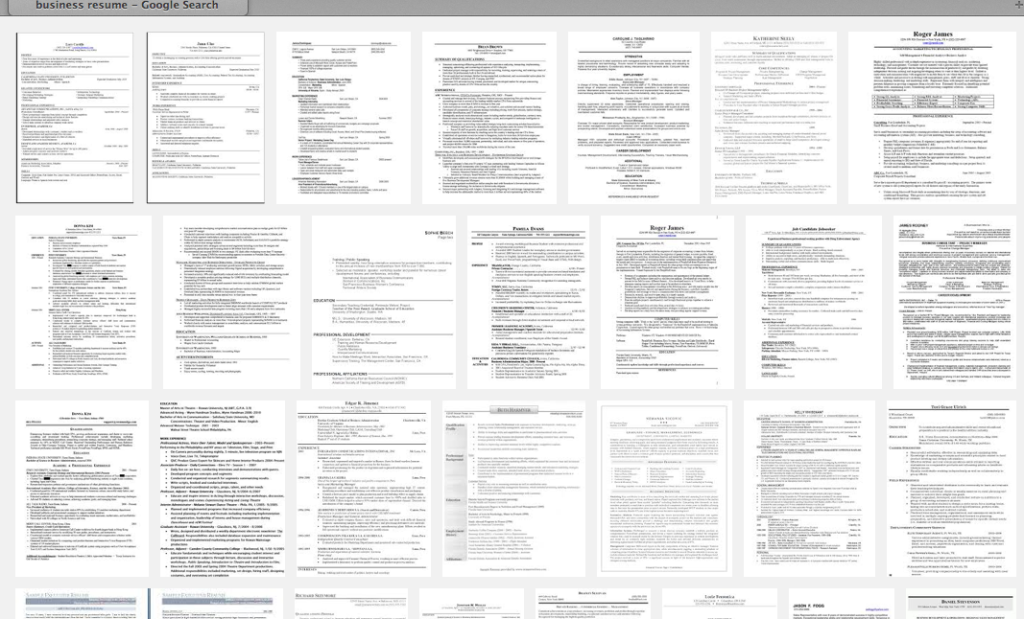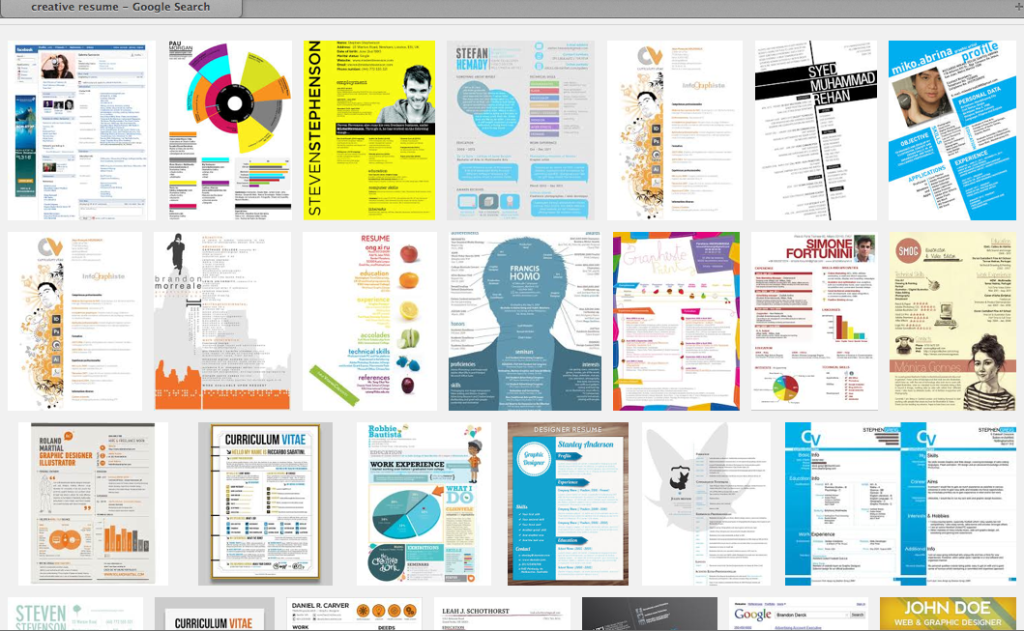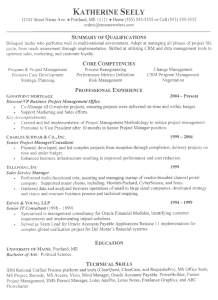By Ashley Gross
I’m looking at a photo of a girl sprawled along gritty sand and covered in faint white polka dots. A name and address sketched in pink bubble writing and a skill list ranging from Photoshop CS3 to typesetting to sketching float above her like a quote bubble. Yes, I am describing a résumé.
Who’s going to hire someone with this format? Creatives.

Resume via Hongkiat.com
If you’re applying to creative fields you need a creative resume. Black and white won’t suffice.
According to Refinery29, the largest independent fashion and style website in the US, employers spend only six seconds browsing your résumé until they decide if you fit their position or not. Employers are said to look at your name, current job title, current position start and end dates, previous position start and end dates, and education.
That’s it. Just six seconds. With that in mind, how do you hold their attention?
Simply search “business résumés” and “creative résumés” and click the image bar. It’s a clear and shocking visual difference. From a screen of black and white ant-like letters on the page to a vibrant splash of color and design — creative résumés clearly make a more wowing first impression than their business counterparts. But it’s important to understand: Business companies would never consider someone with a résumé with such vivacity.

Resume screenshot via Google

Resume screenshot via Google
The first thing to think about when creating your résumé is your field of work. Business companies and creative companies are on two separate spheres of the work world. SMU Cox Business School accounting major Michelle Navarre says its very apparent what the business field is looking for.
“Business students résumés are very black and white,” she says. “There is little room for any style or creativity.” Navarre goes on to say that business résumés like her own “are expected to be highly professional and most résumés follow a very similar format.”
Although creative and business companies look for different traits when hiring, they still need to see what each potential employee could bring to the table. The best way to do this is by putting your core skills first. Bob Gio, director of sales at Sprint, says keywords that describe your core skills may be the most important thing on résumés these days. “Using keywords in a résumé is vitally important in todays competitive environment of job hunting.”
Gio has seen thousands of resumes flow in for a single job and says, “Most HR departments download the resumes into a system and then search for key words that are compatible with the job opening.” His words of advice for getting a job: Get to know the hiring manager and to substitute the objectives paragraph with keywords. “You really do only have six seconds,” says Gio.

Example of a business resume template via resumewriters.com
Morgan O’Hare, SMU Temerlin creative advertising major, has a different approach. “I want my resume to stand out if I’m applying to creative positions. It’s hard to know where to draw the line between making it look professional and making it too clustered.” O’Hare says you can never know how a potential employer will interpret your résumé format. “I want to make it unconventional, but professional at the same time,” she says. She wants her personality to be reflected on the page, whether that be with her own logo, colors or formatting.
Willie Baronet, head of SMU’s Temerlin Advertising Creative Department, once worked in the creative field. “I have hired many dozens of professionals, many creative and some in other positions,” he says.
He maintains that like a resume, your cover letter is key to getting your foot in the door with employers. “I can get a sense about someone’s personality, aesthetic sensibilities and abilities as soon as I see it (the cover letter),” he says.
Baronet remembers one cover letter that stood out — and helped the candidate get the position. “It was handwritten and was about how he was willing to do anything we might want him to, including sweeping the floors. He then proceeded to do an in-depth analysis of different types of brooms and his personal experience with each of them. It was hilarious and we hired him as an intern.”

Pingback: